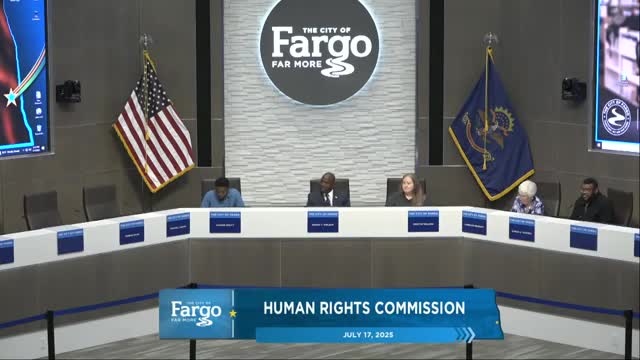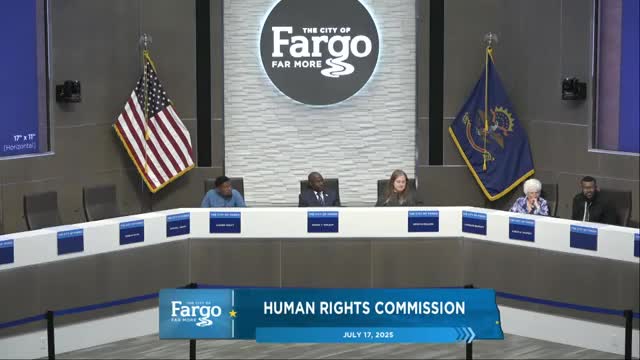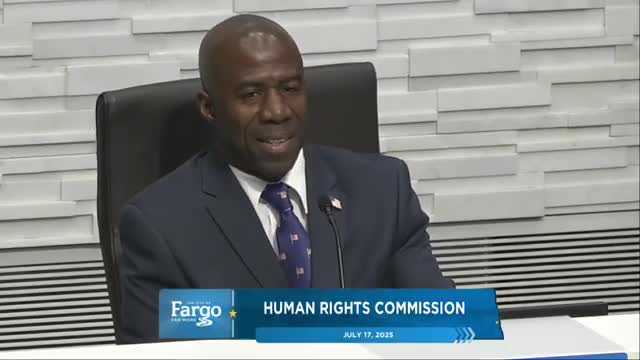Article not found
This article is no longer available. But don't worry—we've gathered other articles that discuss the same topic.

Disability advocate urges Human Rights Commission to press city for Disability Awareness Month proclamation; commission discussion ends with staff follow‑up

Fargo inspections director details rental-license enforcement, tenant protections

Liberian community asks Fargo leaders for funds to open community center, plans July fundraiser events

